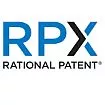Linksmart Wireless Technology, LLC began its sole litigation campaign in 2008, suing multiple companies over one patent generally related to automatic, user-specific redirection. At issue were the defendants' products and systems for providing Internet access in hotspots and hospitality (i.e., hotel) settings. Ten years later, the same patent having emerged from reissue proceedings last summer, the NPE has now taken aim at two purveyors of in-flight entertainment systems—Gogo (8:18-cv-00654) and Panasonic (Panasonic Avionics) (8:18-cv-00662)—separately suing the airlines that use them: for Gogo, AeroMexico (2:18-cv-03335), Air Canada (2:18-cv-03337), Air France-KLM (2:18-cv-03341), Alaska Air (2:18-cv-03345), American Airlines (2:18-cv-03349), British Airways (2:18-cv-03352), Delta Air Lines (2:18-cv-03354), United Continental Holdings (2:18-cv-03348); and for Panasonic Avionics, Southwest Airlines (8:18-cv-00660), The Emirates Group (2:18-cv-03353), and Westjet Airlines (8:18-cv-00657). The recent round of litigation does not however leave the ground entirely; Linksmart has also sued Sonifi Solutions(2:18-cv-03344) for providing Internet access in earthbound hospitality settings.
The original patent (6,779,118) issued in August 2004 with estimated priority date in May 1998 based on the filing of a provisional application. It names two inventors, Koichiro/Koichuru ("Ko") Ikudome and Moon Tai Yeung, both of whom assigned their rights to AuriQ Systems (f/k/a Auric Web Systems), the company that Ikudome founded. Linksmart pleads that AuriQ developed a prepaid Internet access card, as well as related technologies, before the "dot-com crash" forced the company to turn to its current focus: data analytics. The plaintiff further pleads that Ikudome formed Linksmart (which California records date to May 2008) to "continue to derive value from the intellectual property of his and Auric's innovative technological contributions".
In 2008, Linksmart filed a barrage of lawsuits in the Eastern District of Texas against parties involved in redirecting users of mobile computing devices, typically to an authentication page, including those making related networking equipment (e.g., Cisco), wireless providers (e.g., AT&T Mobility), those installing the local access systems (e.g., LodgeNet), and entities providing "hotspot" Internet connections in their establishments (e.g., InterContinental Hotels, McDonald's, etc.). The campaign saw stays to accommodate ex parte and inter partes reexaminations of the '118 patent, a June 2010 order construing multiple disputed claim terms, a partial grant of a motion for summary judgment of indefiniteness (invalidating original claims 15-17, 19, and 22-23), a voluntary dismissal of the Texas action in response to a threat to move to transfer to California, a subsequent refiling in the Central District of California against certain defendants, and various settlements, both with and without prejudice, some in light of acknowledged settlements and some in light of default judgments, throughout.
The last case ended in June 2013, at which point Linksmart embarked on a litigation hiatus, while it sought reissuance of the '118 patent, which began in April 2015. On June 27, 2017, the USPTO reissued the patent to Linksmart (RE46,459); gone were claims 1-90, and newly issued were claims 91-133.
The '118/'469 patent is not the only one naming Ikudome as inventor to have been litigated. In June 2014, AuriQ assigned it to Heritage Protected Transactions, LLC, a Texas entity currently managed by Monument Patent Holdings LLC, the litigation management arm of monetization firm Dominion Harbor Enterprise, LLC. Before October 2014, Heritage went by the name PACid Protected Transactions, LLC and was managed by one of the entities formed by Guy Fielder, founder of PACid Group, LLC, to engage in cybersecurity IP licensing. Heritage/PACid Protected Transactions assigned the patent to Guyzar LLC, an apparent affiliate of monetization firm IP Edge LLC in August 2015, and a few months later Guyzar launched a litigation campaign over the patent (5,845,070), which generally relates to using a separate certification server to authenticate a first server without revealing confidential information about the user. That campaign remains open, having hit over 75 defendants.
Linksmart concurrently filed a notice of interested parties in each case, identifying only the parties, and a corporate disclosure statement, identifying AuriQ as its corporate parent.
The content of this article is intended to provide a general guide to the subject matter. Specialist advice should be sought about your specific circumstances.


